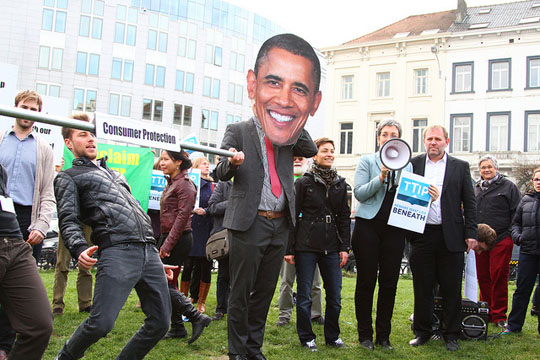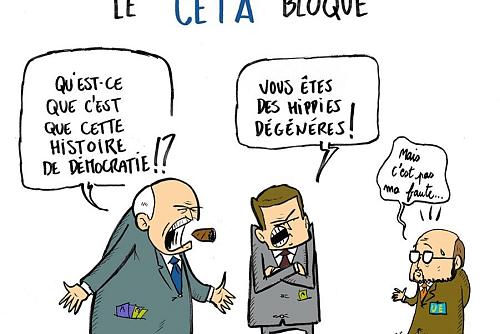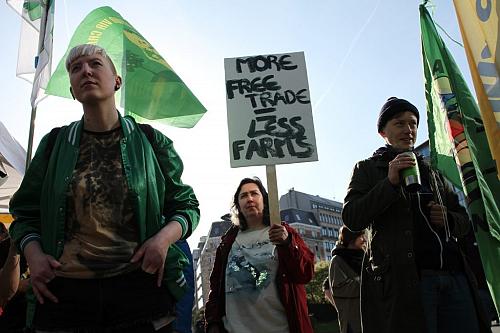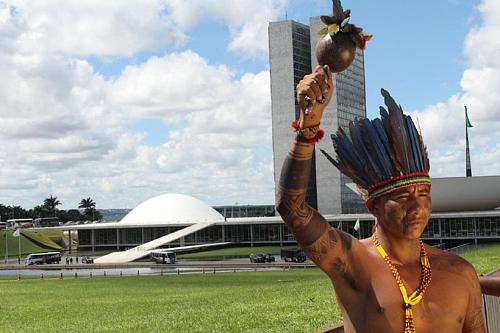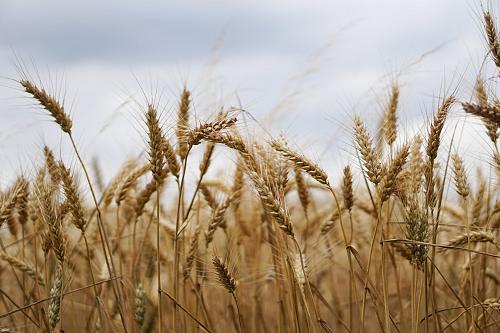For nearly a year, there has been a lot scuttle about a new trade deal between the United States and the European Union.
While branded as a trade pact, the Transatlantic Trade and Investment Partnership (TTIP) actually has little to do with trade. Because tariffs between the U.S. and the EU are already very low, this pact will have little to do with traditional trade issues such as tariffs. Instead, corporations want to use the pact to remove public interest standards and safeguards for the environment, food, chemicals, and more in the U.S. and the EU — demonizing these as "non-tariff barriers" or “trade irritants” — all in the name of higher profits. This could threaten critical U.S. and EU public interest protections that affect our everyday lives and worsen one of our shared challenges — the climate crisis.
Europe generally enjoys higher levels of protection for our food, air, water, and climate than we do in the U.S. Since this so-called “trade pact” could undermine all of these protections, it would seem like Europe has even more to lose than the U.S. from the proposed deal. The truth, however, is that the real winners of this pact would be multinational corporations from both sides of the Atlantic in search of deeper profits, and the real losers will be communities in both the U.S. and the EU and all of us who are affected by climate disruption.
More fossil fuels in lieu of clean energy investment
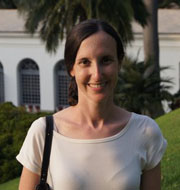
The European Commission, for example, has put forward a proposal for a whole chapter that would essentially expand fossil fuel exports from the U.S. to the EU. This trade pact would make it much easier to export gas from the U.S. to the EU, stripping the authority of the U.S. Department of Energy to even analyze whether the exports are even in the interest of the public. The U.S. would be required to automatically approve all export of natural gas – no questions, no reviews or analyses, and no delays.
What does more exports of U.S. natural gas mean for communities in the U.S.? For one, it means more fracking. Fracking, or hydraulic fracturing, is the violent process that dislodges gas deposits from shale rock formations, and it’s known to contaminate drinking water, pollute the air, and cause earthquakes. More fracking means more hazardous, smog-forming, and climate-altering pollutants in our air ; more threats to our drinking water supply, and more risks to the health of communities, our property, and our environment.
And it’s not just communities in the U.S. that would pay the price for exports of fracked gas. It will also threaten our already destabilized climate. The fracked gas must be extracted, transported via pipeline to export terminals, cooled and liquefied, transported across the world to the EU where the gas must be regassified and then transported and burned. This whole process is incredibly energy intensive, and requires pouring millions, if not billions, of dollars into fossil fuel infrastructure at a time when all countries must be transitioning to a clean energy economy.
Unbridled power for greedy corporations
This trade pact could also empower multinational corporations to directly challenge climate and environmental policies in the U.S. and the EU that corporation allege reduces their profits. If “investor-state dispute settlement” is included in this pact, policies—such as safeguards for coal-fired power plants or moratoriums on fracking—could all be subject to challenge by corporations in private trade tribunals.
In fact, these “investor protections” in other trade and investment agreements have empowered corporations to challenge more than 568 policies of 98 governments. Many of these corporations are from Big Oil and Gas — such as Chevron and ExxonMobil — and can’t seem to part with their record profits in order to protect the environment. Recently an American energy firm named Lone Pine Resources used the “investor-state” provisions in the North American Free Trade Agreement (NAFTA) to sue Canada for $250 million simply because Quebec’s provincial government put in place a time-out on fracking for oil and gas underneath their St. Lawrence River.
Simply put, investor-state is a dangerous system that imperils communities and our global environment, and must be excluded from this pact.
More of the same mistakes
As we’ve seen with the use and abuse of investor-state provisions, all we need to do to predict the costs of a new trade deal is look in the rear-view mirror.
Twenty years after NAFTA went into effect linking the trading economies of the U.S., Mexico, and Canada, we see irreversible damage done to working people, communities, and the environment. NAFTA led to an expansion of deforestation and unsustainable water use in order to support export-oriented agriculture. It expanded exports in dirty fossil fuels in a time when we should be moving beyond these outdated fuels and investing in clean energy. Since the signing of NAFTA, increased maquiladoras under weak environmental safeguards and deplorable labor standards harmed the climate and communities. Greenhouse gas emissions have grown by 13.3 percent in the U.S., 23 percent in Canada, and 67.1 percent in Mexico.
Governments must take a page out of the history books and stop negotiating trade pacts that gut protections for our air, water, land, workers, and communities.
The bottom line
What we know about this trade deal is bad, and what we don’t know might be worse. Negotiations have been taking place against a backdrop of secrecy, excluding those whose lives will be most greatly affected by the final deal. The first step in ensuring that trade policy protects communities and the environment is involving the public in all stages of decision-making. A new model of trade that benefits communities and the environment is possible—and urgently needed—and it begins with public participation. After all, trade is supposed to build bridges between nations of people, not fast lanes for the profits of big corporations.
Ilana Solomon, Director, Responsible Trade Program, Sierra Club
This op-ed has been translated in French here.


